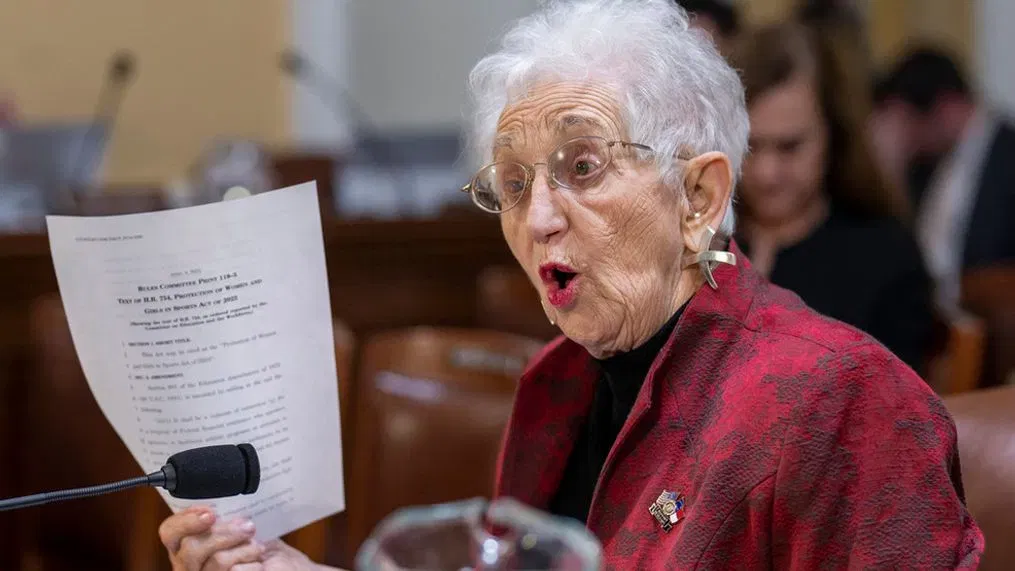As tensions flare over how universities handle antisemitism, Republican Representative Virginia Foxx has taken a bold step by issuing a legally binding subpoena to Columbia University. The subpoena, delivered on August 23, 2024, demands all records related to discussions among high-level administrators about antisemitism since the Israel-Hamas conflict reignited. This action highlights the escalating scrutiny of how academic institutions are addressing discrimination concerns, particularly those involving Jewish students and staff.

It was a chilly morning in New York City when Columbia University staff received an unexpected legal document—an official subpoena from the House Education and Workforce Committee, chaired by Rep. Virginia Foxx. The subpoena demands extensive records from the university, zeroing in on how top administrators have been handling the surge of antisemitism on campus since the start of the Israel-Hamas war.
The Context: A President’s Sudden Resignation
Columbia University, one of the nation’s oldest and most prestigious academic institutions, has been under the microscope for its handling of antisemitic incidents during recent anti-war protests. The sudden resignation of President Minouche Shafik, nearly a week before the subpoena, added fuel to the fire. Shafik, who was the first woman to lead Columbia, had only served in her role for a year. Her abrupt departure has left many wondering if the mounting pressure over campus antisemitism was a contributing factor.
Rep. Virginia Foxx minced no words when she accused Columbia of not fully cooperating with legislative efforts to understand the situation. “The safety and well-being of Jewish students and staff should never be in question. Yet, Columbia’s response to these serious allegations has been insufficient,” Foxx stated.
A School’s Commitment vs. Political Pressure
Despite the criticism, Columbia University maintains that it has been fully transparent and cooperative. Ben Chang, a university spokesperson, responded to the subpoena by highlighting the school’s ongoing efforts. “We have provided thousands of documents over the past seven months in response to the committee’s dozens of ongoing requests. Columbia remains dedicated to combating all forms of discrimination, including antisemitism,” Chang said.
This statement, however, does little to quell the concerns of those who believe more decisive action is needed. The subpoena marks a significant escalation, signaling that lawmakers are not satisfied with the university’s responses thus far. It also raises questions about the broader implications for academic freedom and the role of government oversight in university governance.
The Broader Implications
The situation at Columbia is not an isolated incident but part of a larger national conversation about antisemitism, free speech, and how universities manage controversial political discussions on campus. With antisemitic incidents reportedly on the rise across various educational institutions, this issue is not likely to fade from the public eye anytime soon.
As universities across the country watch the developments at Columbia, the message is clear: government scrutiny is intensifying, and the stakes are higher than ever. The resignation of Columbia’s president, coupled with this aggressive legal move, may very well set a precedent for how similar cases are handled in the future.
A Call for Action
This unfolding story at Columbia University is more than just a political maneuver; it’s a reminder of the real-life impact these issues have on students and staff. The concerns raised by Jewish members of the campus community reflect a broader struggle for safety, acceptance, and the right to learn in an environment free from hate and discrimination.
As this investigation continues, the hope is that it will lead to meaningful changes—not just at Columbia, but across all academic institutions facing similar challenges.
Summary
- Virginia Foxx has issued a subpoena to Columbia University demanding records on antisemitism discussions amid concerns over campus safety.
- Columbia President Minouche Shafik resigned a week before the subpoena, fueling speculation about the pressure over antisemitism concerns.
- Columbia claims it has cooperated fully, providing thousands of documents to lawmakers.
- The subpoena marks an escalation in the scrutiny of universities’ handling of antisemitism and discrimination.
- The situation at Columbia is part of a broader national conversation about antisemitism, free speech, and university governance.

